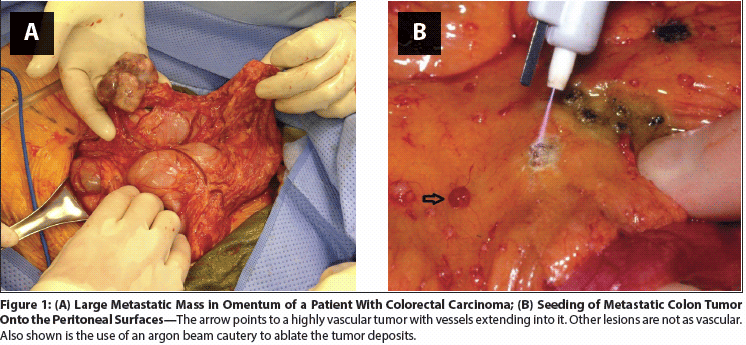Peritoneal Carcinomatosis is secondary cancer, a rather complex clinical pathological condition that causes damage to the peritoneum, i.e. lining of abdominal cavity.
This type of cancer is affecting more than %55 of the types of cancers all around the world.
Diagnose of Peritoneal Carcinomatosis
To diagnose for Peritoneal Carcinomatosis doctor will generally ask the patient to undergo…
- CT scan
- Physical examination
- Tumor market test
- Biopsy perform by specialize surgeons and doctors
- Trans Vaginal Sonography which is also for examining female pelvic organs, so that if cancer exists it can be detect early and woman’s chances of survival and getting back to leading a fit and normal life can be higher.
 [note]http://www.cancernetwork.com/gastrointestinal-cancer/gastrointestinal-cancers-peritoneal-carcinomatosis-surgery-and-hyperthermic-intraperitoneal[/note]
[note]http://www.cancernetwork.com/gastrointestinal-cancer/gastrointestinal-cancers-peritoneal-carcinomatosis-surgery-and-hyperthermic-intraperitoneal[/note]
What are the Treatment for Peritoneal Carcinomatosis?
Treatment for this is quite aggressive, since it is an advance and complex type of cancer.
Earlier it has regard fatal but not anymore with advance research, surgeries and therapies available.
Peritoneum is name of a very thin coating of tissue.
This tissues one layer surrounds the affected abdominal organ and the other layer makes a pouch across the entire abdominal cavity.
The space between the layers gets filled with fluid.
When abdominal cancer spreads to the peritoneum, it indicates that abdominal cancer has reached an advanced stage.
This type of cancer is diagnose in patients who have been diagnosed with cancer earlier in some body part and have been treated for it in the past.
They could have been suffering from cancer in the pancreas, stomach, Colon, & ovarian cancer in case of women, and colorectal carcinoma in men.
At anytime when a patient is diagnosed with this type of cancer doctor already knows that he suffers or has suffered from some kind of cancer in the past and chances are that he is already being treated for stopping the cancer cells from spreading.
If the first cancer was at an advanced stage and could not get wiped out from the root for any reason, then the remaining cancer residues spread to other parts of body or implant themselves in the lining resulting in Peritoneal Carcinomatosis.
Other Types of Peritoneal Carcinomatosis
A yet another sub type in this category – called primary peritoneal Carcinomatosis, is not a common condition and affects women who are more likely to get ovarian cancer and it starts in the peritoneum.
The initial symptoms of Peritoneal Carcinomatosis include:
- Unbearable pain in the abdomen
- Body feels bloated
- The patient feels consistently tired
- Patients also complain about having breathing difficulties
- Problems related to digestion
- Pain in the chest region
Symptoms also sometimes depend on the stage and exact location of organ where the original cancer is.
The researchers have identified 2 peculiar patterns related with glucose metabolism which should alert the doctors to the possibility of existence and accurate interpretation of peritoneal Carcinomatosis.
As soon as the condition is diagnosed, it is important that he is given appropriate treatment that may be a combination of medicinal course and surgery.
Who’s At Higher Risk Of Peritoneal Carcinomatosis?
People more prone to Peritoneal Carcinomatosis are those who have had cancer in and around stomach region.
Any part or organ of the body that is close to abdomen is more prone to getting attacked by remaining cancer cells after treatment.
Moreover, internal spreading germs and infection by way of ulcers rupturing when it comes to cancer of stomach or intestine etc.
The high risk patients for this type of cancer are those have had the history of second stage cancer of ovary, liver, pancreas, stomach, intestines etc.
There have also been cases when Peritoneal Carcinomatosis has been seen in patients who had cancer in the body organ far from abdomen or even people treated for bone cancer.
In these cases, cancer cells have been so strong that they are able to get better off lymph and spread through blood stream.
There are several ways to treat this disease like;
- Chemotherapy called Heated Intraoperative Intraperitoneal Chemotherapy Administration
- Surgical procedure involving Peritonectomy procedures
- Dissect using electro-evaporative surgery with Intraperitoneal chemotherapy to altogether uproot the cancer cells.
- Surgery and medical treatment like chemotherapy etc is a matter of choice and can turn out to be an expensive affair.
If Peritoneal Carcinomatosis is diagnosed at a primary stage and the primary cancer treatment is also showing encouraging results;
In such cases patient’s chances of surviving the crises and leading a normal life are better than when both cancers are diagnosed at second or third stage.
Or old cancer has reoccurred and is showing signs of spreading then in such cases treatment is far slower and results time take time come by and show.
Accurate medical supervision regarding patient’s response to chemo is regarded crucial.
Complete eradication of the disease is negligible, controlling the cells from spreading seems like a more practical solution.
